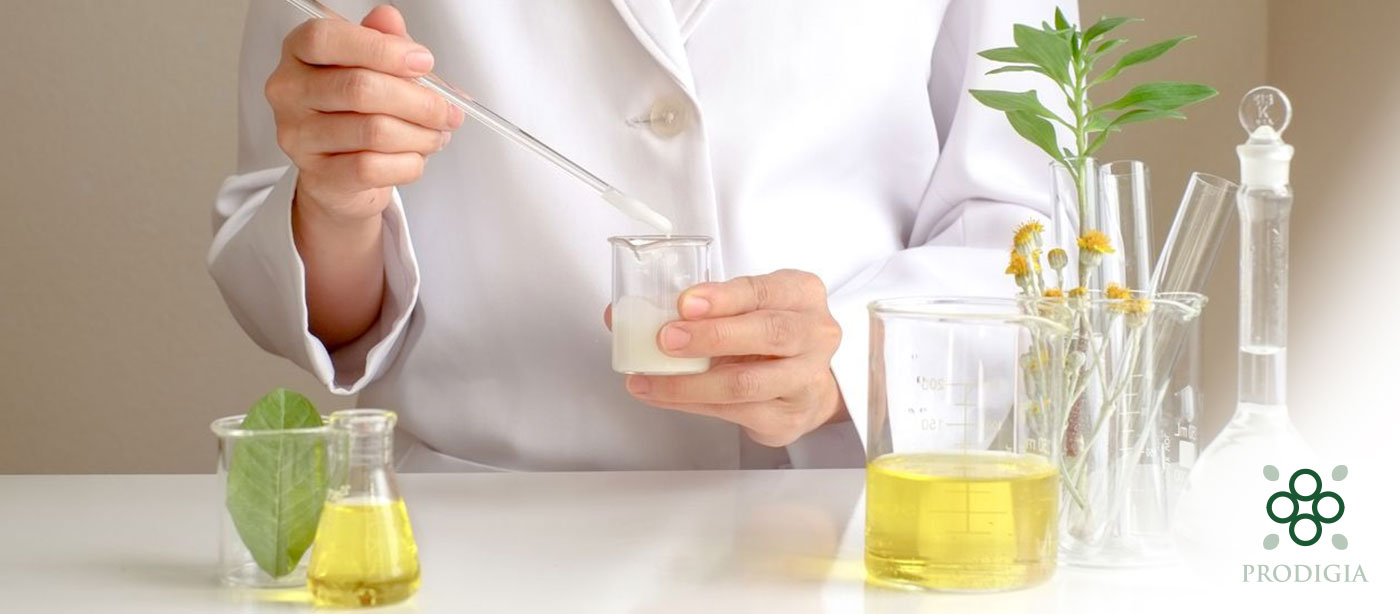A cosmetic product is much more than the sum of its raw materials, and that is the art of cosmetics. The selection of raw materials is essential; it involves their in-depth knowledge which is mainly based on the data transmitted by your supplier. We reveal to you the magic formulas of the formulation of natural cosmetics in this article:
1. Shower gels and shampoos
SLE (Sodium Laureth Sulfate) is a strong ionic detergent and surfactant, they are not considered natural and are not authorized as part of an organic or natural certification. This is why we recommend replacing it with surfactants derived from natural non-petrochemical products. The best example for shower gels is coco-glucoside (a mild surfactant derived from coconut, it produces a light lather and is gentle on even sensitive skin). And for shampoos, the best example would be Sodium Lauroyl Sarcosinate (an anionic surfactant derived from sarcosine).
2. Lipids (Oils)
The synthetic ingredients that should never be included in your preparations are petrochemical oils. The term petrochemical oil or mineral oil in fact designates products from petroleum refining. Completely synthetic, these oils are absolutely not biodegradable and should be avoided to be able to meet sustainable development.
How to spot them on the list of ingredients of a cosmetic product? They are called: Paraffinum Liquidum, Petrolatum, Cera Microcristallina, Ozokerite, Ceresin, Mineral oil.
3. Creams, lotions, and milks
Ethoxylated compounds are made from a highly reactive, extremely toxic, carcinogenic and mutagenic gas, ethylene oxide. Even though in real life there is no residue of this gas in ethoxylated cosmetic ingredients, it is still considered highly processed and therefore not natural ; Ceteareth-20 or PEG-40 should be replaced by natural emulsifiers. The best would be Cetearyl Olivate and Sorbitan Olivate, derivatives of cetearyl alcohol and olive oil. They allow the development of a plant emulsifier highly compatible with our skin, rapid absorption, while giving creams a silky touch.
4. Serums
The use of silicones for your serum preparations should be avoided. Cyclopentasiloxane, dimethicone, and dimethiconol should therefore be replaced by oils with similar properties. We advise you to favor fluid and light oils: grape seed oil, caprylic / capric triglycerides, acai, walnut, hazelnut or jojoba oil.
5. Conditioners and Leave-in
Quaternary ammoniums should not have a place in your conditioner preparations; they are strongly irritating and dehydrating. It is better to use nourishing fatty alcohols, brassica alcohol is the best example to recommend. It is an excellent emollient, emulsion stabilizer, and viscosity control agent in cosmetics.
At Prodigia, we are proud of our mastery of the formulation of natural cosmetic products. We are also proud to present a large catalog of clean natural products in full service in white label. Discover our Natural Shower Gel With Argan Oil, Neutral Base Massage Oil, Sulfate free shampoo with essential oils (Oily Hair), Natural Anti-Dandruff Care, and Natural Anti Hair Loss Synergy.



